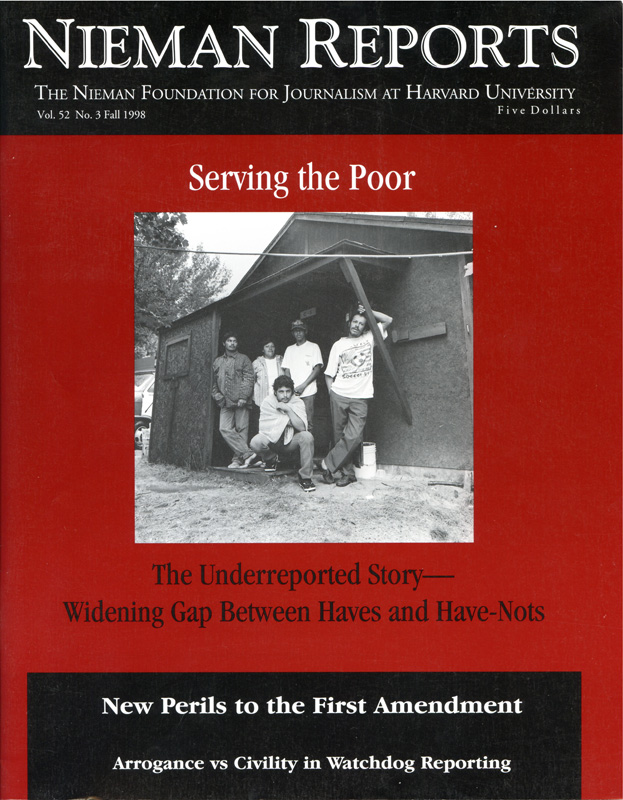In the following pages Nieman Reports continues its call for more watchdog reporting with an article by Murrey Marder cautioning that aggressive watchdog reporting does not require arrogance, an essay by Will Englund on the rewards of avoiding confrontation and a report from Jenny Lo on British journalists’ more combative style. These are followed by excerpts from the first Nieman Foundation Conference on Watchdog Journalism, May 2, 1998, at Harvard. At the conference participants suggested ideas that editors, reporters and news producers might consider as they fulfilled their responsibilities in four areas: national security, state and local government, economics and the nonprofit sector.
Fall 1998: Watchdog Journalism Introduction
Serving the Poor
“I think a strong argument can be made that the residents of [poorer] areas are severely disadvantaged—as citizens, as workers, as consumers—by the lack of serious coverage from television and the lack of local coverage of their neighborhoods by newspapers,” said Maxwell King former Editor of The Philadelphia Inquirer. The reason, of course, is that the media, regardless of their claims of serving all the people, aim for the affluent, the audience that advertisers seek. It would seem, then, that if newspapers want to expand readership they would be worried about the growing gap between the rich and the poor.




